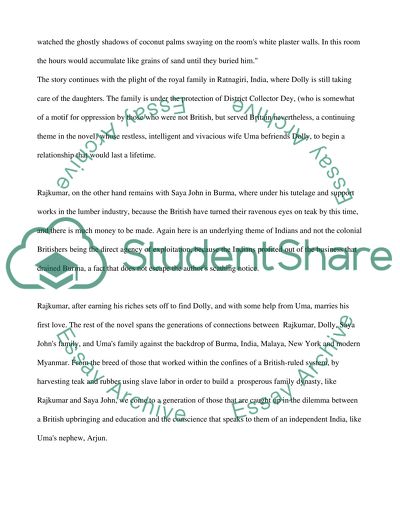Cite this document
(“Amitav Ghosh's The Glass Palace Essay Example | Topics and Well Written Essays - 1500 words”, n.d.)
Retrieved from https://studentshare.org/miscellaneous/1506916-amitav-ghoshs-the-glass-palace
Retrieved from https://studentshare.org/miscellaneous/1506916-amitav-ghoshs-the-glass-palace
(Amitav Ghosh'S The Glass Palace Essay Example | Topics and Well Written Essays - 1500 Words)
https://studentshare.org/miscellaneous/1506916-amitav-ghoshs-the-glass-palace.
https://studentshare.org/miscellaneous/1506916-amitav-ghoshs-the-glass-palace.
“Amitav Ghosh'S The Glass Palace Essay Example | Topics and Well Written Essays - 1500 Words”, n.d. https://studentshare.org/miscellaneous/1506916-amitav-ghoshs-the-glass-palace.


